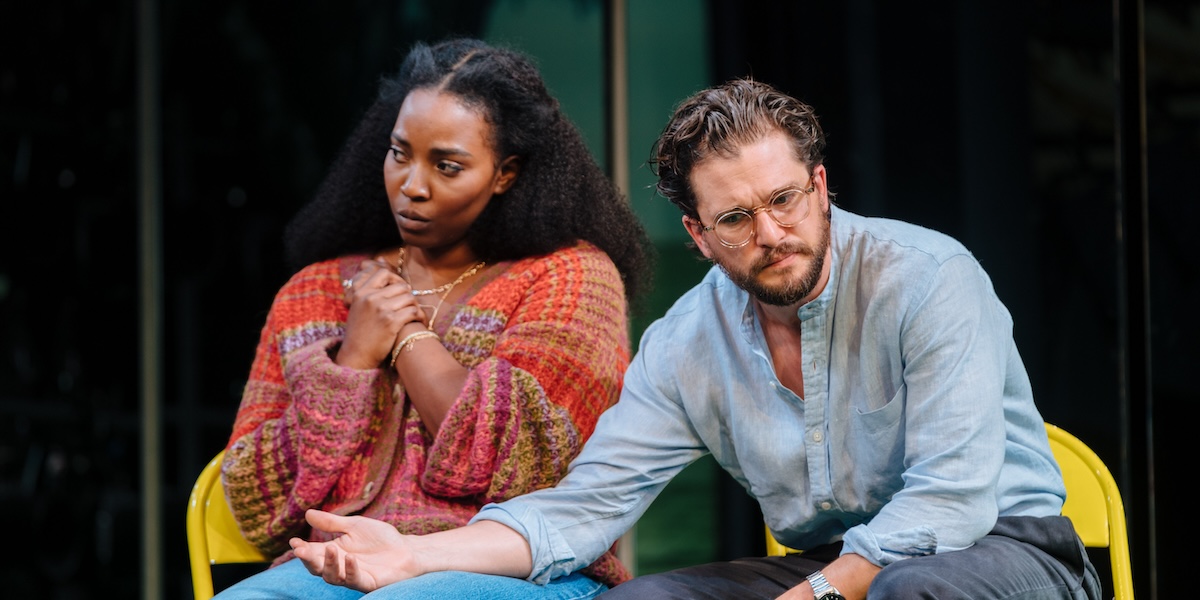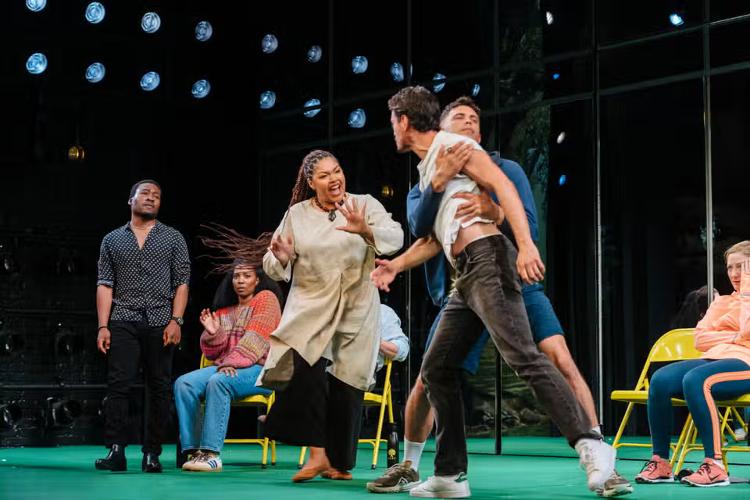Stepping into the Noël Coward Theatre for Jeremy O. Harris's "Slave Play" is like entering a therapy session gone spectacularly wrong. The play, both outrageously funny and deeply unsettling, tackles race, power dynamics, and the lingering shadows of America's past through an absurdist lens.
The play tells the story of three interracial couples who take part in a workshop to revitalise their sex lives. Played with deliciously dry humour by Chalia La Tour (Teá) and Irene Sofia Lucio (Patricia), these therapists prescribe a radical solution for the couples' failing relationships – a complete reversal of racial power structures within a simulated antebellum setting.
Enter Kaneisha (Olivia Washington), a woman simmering with suppressed rage, paired with the resistant Jim (Kit Harington), a buttoned-up Briton who seems perpetually on the verge of a stiff upper lip revolt. Their dynamic is both comical and deeply unsettling, highlighting the play's exploration of racial power imbalances.
We also meet Phillip (Aaron Heffernan), a mixed-race heartthrob brought in to add spice to the vanilla marriage of Alana (Annie McNamara). Alana, with her naivete bordering on Karen-esque, makes them the play's most superficially drawn couple.

In contrast, Gary (Fisayo Akinade) and Dustin (James Cusati-Moyer) offer a more nuanced exploration of race and identity. Akinade delivers a superb performance as Gary, a Black middle-class man grappling with the power dynamics imposed by the experiment. Dustin, who appears white but identifies as "other," adds another layer of complexity to the play's central themes.
Director Robert O'Hara masterfully orchestrates the chaos. Clint Ramos's set features a wall of rectangular mirrors, and we see our own reflections as we bear witness to these racially and sexually charged scenes. This creates a visceral impact, forcing the audience to confront their own complicity within the play's exploration of race and power.
"Slave Play" is far from a laugh riot. The laughter often feels forced, a nervous release valve for the audience grappling with the play's unflinching portrayal of race-based power dynamics. The liberal use of racial slurs and the simulated violence are jarring. The play doesn't shy away from the ugliness of America's past, forcing us to confront the ways it continues to colour our present relationships.
Harris offers no easy answers. The couples grapple with their newfound power and the uncomfortable truths it reveals about themselves and their relationships. Is desire truly born from dominance and submission? Can love survive such a brutal framework? The play raises these questions, leaving audiences to wrestle with the uncomfortable silence in its wake.
This show is not for the faint of heart. It's a challenging and provocative piece that will make you squirm in your seat. But it's also undeniably funny and thought-provoking. If you're looking for a play that will spark conversation and stay with you long after the curtain falls, then "Slave Play" is a must-see. Just be prepared to laugh, squirm, and confront some uncomfortable truths about yourself and the world we live in.
It runs until 21 September. tickets: here.
Photos: Helen Murray

